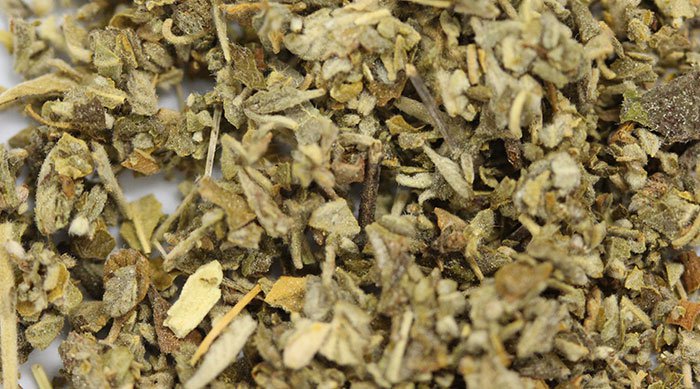Investigating the Promising Applications and Favorable Influences of Flavor as an Artificial Cannabinoid
In recent times, the exploration of synthetic cannabinoids, specifically Seasoning, has actually triggered intriguing conversations within the clinical and clinical communities. The prospective applications and effects of Flavor in different restorative settings have actually drawn focus for their unique buildings and impacts on the body. As research study delves much deeper right into this artificial substance, discovering its resemblances and variations with natural cannabinoids, a nuanced understanding of its advantages and difficulties arises. This conversation aims to clarify the encouraging methods that Spice presents in the realm of health care and wellness, triggering a reevaluation of standard techniques to cannabinoid-based treatments.
Restorative Possible of Seasoning
Checking out the healing possibility of Seasoning, a synthetic cannabinoid, includes a critical exam of its pharmacological residential properties and potential clinical applications. Flavor, likewise called artificial cannabis, connects with the endocannabinoid system in a way similar to all-natural cannabinoids, such as those discovered in marijuana. This interaction results in various physical effects that have sparked interest in its healing possibilities.
Researches have shown that Spice may have prospective as an analgesic, aiding to reduce discomfort in conditions such as neuropathic discomfort or chronic inflammatory pain - Buy K2 Paper For Sale. Furthermore, its communication with cannabinoid receptors provides an opportunity for discovering its use in taking care of signs of problems like several sclerosis or chemotherapy-induced queasiness and vomiting

Discomfort Monitoring Benefits
Flavor, an artificial cannabinoid, shows encouraging potential in discomfort monitoring as a result of its analgesic buildings and communications with the endocannabinoid system. The analgesic properties of Seasoning stem from its ability to regulate pain understanding pathways, using remedy for various types of pain, consisting of neuropathic, inflammatory, and nociceptive discomfort. By targeting the endocannabinoid system, Seasoning can control discomfort signals, minimize inflammation, and reduce discomfort related to persistent pain problems.
Researches have actually revealed that Seasoning can successfully decrease pain intensity and enhance pain resistance in preclinical models of pain. This synthetic cannabinoid has demonstrated efficacy in managing discomfort signs and symptoms without causing considerable adverse effects commonly related to typical pain medications. In addition, Seasoning shows potential in reducing opioid dependancy and abuse, using a much safer alternative for pain management.
Neuroprotective Characteristics
Synthetic cannabinoids like Seasoning have actually been significantly identified for their possible neuroprotective buildings in alleviating neuronal damage and advertising mind health. Researches suggest that these substances may offer neuroprotection with various devices, including antioxidant discover this effects, anti-inflammatory homes, and inflection of natural chemical launch. By connecting with the endocannabinoid system in the brain, artificial cannabinoids can manage neuronal activity and possibly lower the influence of neurodegenerative illness or injuries.
One trick facet of the neuroprotective residential or commercial properties of Seasoning is its capacity to modulate excitotoxicity, a process in which too much excitement of neurons brings about cell damage or fatality. By regulating neurotransmitter release and dampening excitotoxic signaling paths, synthetic cannabinoids may assist secure nerve cells from unsafe overstimulation. In addition, the anti-inflammatory effects of Flavor might reduce neuroinflammation, which is typically implicated in different neurological problems.
Comparative Analysis With Natural Cannabinoids
In contrasting the neuroprotective buildings of synthetic cannabinoids like Spice with those of all-natural cannabinoids, a nuanced examination of their corresponding effects on neuronal health is essential. Natural cannabinoids, such as those located in the cannabis plant, have actually been thoroughly examined for their neuroprotective effects. These compounds communicate with the endocannabinoid system in the body, which plays a crucial role in maintaining neuronal function and protecting against neurodegenerative diseases.

Regulative and Honest Considerations
Thinking about the possible effects on human health and well-being, an exam of regulative and honest considerations bordering using artificial cannabinoids contrasted to natural cannabinoids is crucial. Synthetic cannabinoids, like Seasoning, existing one-of-a-kind difficulties as a result of their usually unknown chemical compositions and potency variations. Regulative bodies face the challenging job of staying on top of the quick emergence of new artificial cannabinoid compounds, which can make it tough to apply consistent and efficient laws.

To deal with these regulatory and moral challenges, policymakers have to prioritize research study right into the long-lasting impacts of synthetic cannabinoids and develop clear guidelines for their manufacturing, sale, and usage. Education and learning campaigns are crucial to educate the public about the threats connected with artificial cannabinoids and advertise liable usage practices. By taking aggressive procedures, culture can much better protect versus the possible damages presented by artificial cannabinoids while maintaining honest criteria and shielding public health.
Conclusion
Finally, the investigation into the healing capacity of spice as a synthetic cannabinoid has actually revealed encouraging cause pain monitoring and neuroprotection. Relative evaluation with natural cannabinoids recommends similar advantages. However, regulative and ethical factors to consider need to be thoroughly checked out before widespread use. Overall, the favorable effects of spice as an artificial cannabinoid warrant further research study and expedition in the clinical field.